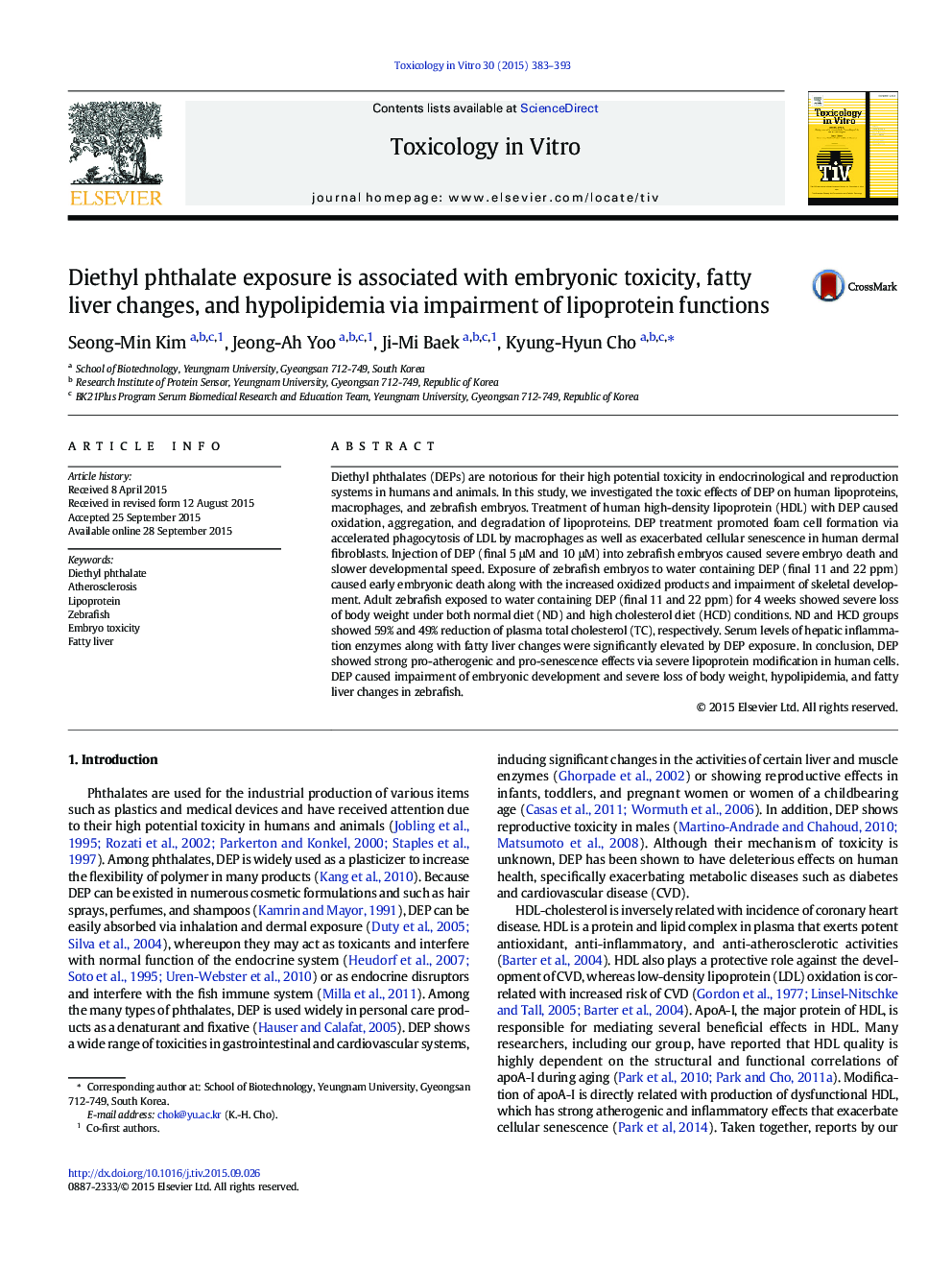| Article ID | Journal | Published Year | Pages | File Type |
|---|---|---|---|---|
| 2602423 | Toxicology in Vitro | 2015 | 11 Pages |
•Diethyl phthalate (DEP) induced degradation of human serum lipoproteins.•HDL containing DEP showed loss of antioxidant ability.•DEP caused severe embryonic death with skeletal malformities.•DEP caused severe loss of body weight and hypolipidemia.•DEP caused elevation of hepatic inflammation in zebrafish.
Diethyl phthalates (DEPs) are notorious for their high potential toxicity in endocrinological and reproduction systems in humans and animals. In this study, we investigated the toxic effects of DEP on human lipoproteins, macrophages, and zebrafish embryos. Treatment of human high-density lipoprotein (HDL) with DEP caused oxidation, aggregation, and degradation of lipoproteins. DEP treatment promoted foam cell formation via accelerated phagocytosis of LDL by macrophages as well as exacerbated cellular senescence in human dermal fibroblasts. Injection of DEP (final 5 μM and 10 μM) into zebrafish embryos caused severe embryo death and slower developmental speed. Exposure of zebrafish embryos to water containing DEP (final 11 and 22 ppm) caused early embryonic death along with the increased oxidized products and impairment of skeletal development. Adult zebrafish exposed to water containing DEP (final 11 and 22 ppm) for 4 weeks showed severe loss of body weight under both normal diet (ND) and high cholesterol diet (HCD) conditions. ND and HCD groups showed 59% and 49% reduction of plasma total cholesterol (TC), respectively. Serum levels of hepatic inflammation enzymes along with fatty liver changes were significantly elevated by DEP exposure. In conclusion, DEP showed strong pro-atherogenic and pro-senescence effects via severe lipoprotein modification in human cells. DEP caused impairment of embryonic development and severe loss of body weight, hypolipidemia, and fatty liver changes in zebrafish.
